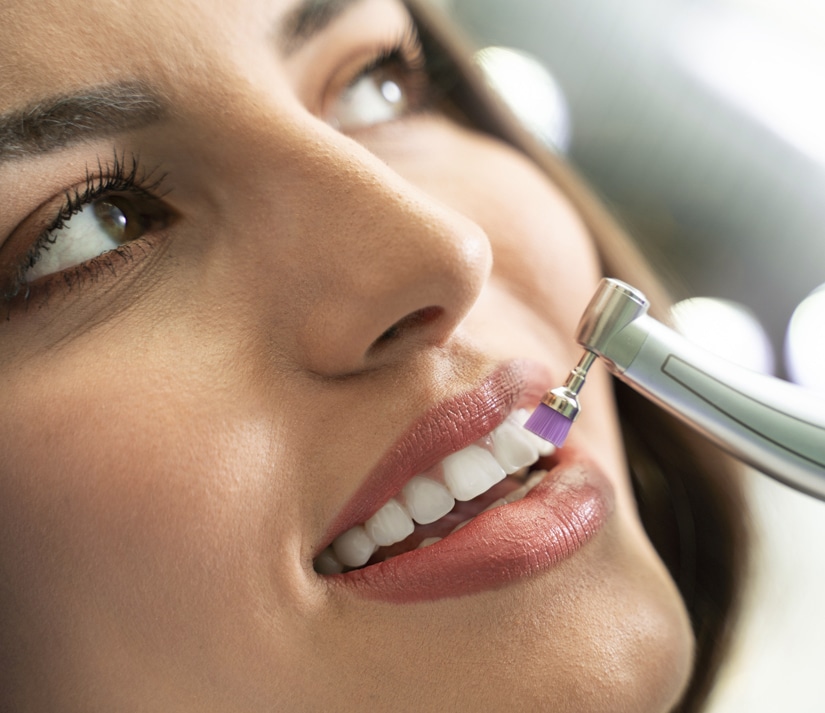
Dental Cleanings and Exams
What distinguishes Preventive Dentistry from General Dentistry?
It is essential, as per the ADA, to see your dentist twice a year for a thorough dental check-up and professional teeth cleaning. These actions are crucial for preventive dentistry and have been scientifically proven to significantly reduce the chances of cavities, oral infections, and gum disease.
Your dentist in Vidor, TX fully supports the ADA's recommendation and will only adjust your appointment schedule if you have a condition that necessitates ongoing treatment or more frequent check-ups and cleanings.
A preventive dentistry examination comprises:
- A dental examination
- X-rays will be taken if deemed necessary
- An oral cancer screening will also be conducted.
If you are prone to cavities, your dentist may suggest a dental sealant to safeguard your tooth enamel from debris. Moreover, a fluoride treatment can help strengthen weak enamel. These treatments are particularly advantageous for children.
During your preventive dentistry examination, you will also receive a professional teeth cleaning. A skilled and friendly hygienist will utilize special tools to eliminate plaque and tartar that your toothbrush may not reach.
Feel free to discuss with your hygienist the best practices for at-home dental care.
Regular teeth cleaning is crucial for maintaining your long-term oral health.
On the other hand, general dentistry focuses on restoring your oral health when issues arise, such as treating tooth decay with dental fillings.
Our general dentistry treatments include the following:
Dental fillings are used to treat cavities.
Root Canal Therapy
Tooth Replacement:
Periodontal treatment is now accessible.
Tooth extractions are performed.
Is Family Dentistry offered in Vidor, TX?
Our team of dentists has extensive experience in treating patients of all age groups. We are committed to delivering comprehensive care for the entire family. Our dental treatments and prevention services are tailored to meet the unique needs of each individual, and we are well-versed in age-appropriate dentistry.
We warmly welcome children, senior adults, and individuals of all ages. Additionally, for those who may experience dental anxiety, we offer sedation dentistry to ensure a comfortable and relaxed visit to our clinic.
What is gum disease?
Gum disease, also known as gingivitis, occurs when plaque builds up and is not effectively removed through brushing, flossing, and dental cleanings.
Smokers are particularly vulnerable to gum disease, but other factors such as poor oral health, medications, genetics, and teeth grinding can also contribute to its development. Gingivitis is the initial stage of gum disease and can be easily treated, but if left untreated, it can progress into more severe forms of gum disease, such as periodontal disease.
Each stage of the disease can have a significant impact on oral health, with advanced periodontal disease causing gumline issues, bone loss, and tooth loss. To prevent gum disease, it is important to maintain regular tooth brushing and flossing habits and schedule routine dental cleanings. Some common signs of gum disease include:
- Gums that are red, bleeding, or swollen
- Consistent bad breath
- Loose teeth
- Sensitive teeth
- Gums that appear to be receding, making teeth look longer
- Abscessed teeth
Some patients may not experience many symptoms in certain areas, such as gum disease, which can be asymptomatic. This means that symptoms may be mild or go unnoticed. To effectively monitor oral health, we recommend visiting Dr. Gomez and his professional dental team.
Regular dental cleanings and exams allow us to identify any changes or abnormalities in your teeth and gums, and prevent future dental issues. The advantage of gum disease is that it can be easily treated if detected early.
Therefore, if it has been a while since your last dental checkup, or if you smoke or notice bleeding while brushing, it may be a good time to schedule an appointment with us.
What steps can I take to prevent dental health issues?
To ensure optimal oral health, it is crucial to brush and floss your teeth at least twice daily. For even more effective outcomes, aim to brush and floss after each meal. It is strongly advised to quit using any form of tobacco to minimize the chances of developing oral cancers and gum disease.
If you encounter tooth sensitivity or persistent sore spots in your mouth, promptly inform your dentist.


